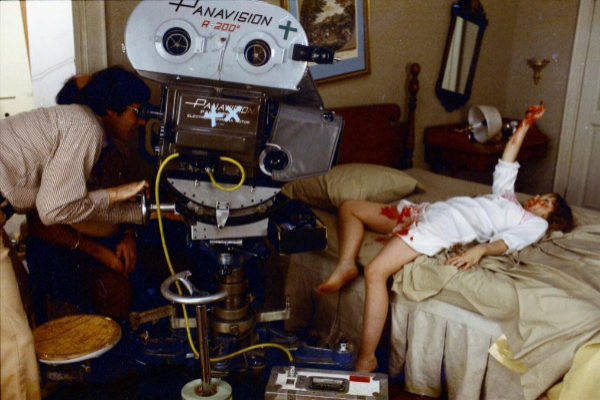- Black legend: Eight evidence that it's a damn saga
What if cinema, in general, was nothing more than an act of faith? Of course. How to explain if not the rare artifice that turns a dark room barely illuminated by lightning in the far west, or in space, or on the stage of, for example, a demonic possession? 'Leap of faith' (that is, act of faith) is what director Alexander O. Philippe calls his documentary about 'The Exorcist' that was presented at the Mostra on Wednesday and basically consists of a long and precise interview with his Director William Friedkin . And, in effect, in the little less than two hours that the long and visceral soliloquy lasts, the screen acquires the same consistency as dreams. And that faith. Friedkin's passion when it comes to remembering every detail of the film that changed the history of the horror genre in 1973 and, already in place, of cinema itself ends up knocking down every possible doubt. And you end up believing completely blindly. Without the least threat of cynicism. It's about faith in Friedkin; of faith in the cinema.
And the phrase that closes the previous paragraph summarizes Philippe's clairvoyant fortress. Before this one, the documentary maker had approached with other clarity other necessarily mythical films. 'Memory: The origins of Alien' is a good example of both his erudition and wisdom and, again, his faith. Then, it was about investigating each of the ideas and influences that led to Ridley Scott's happy nightmare. Now, everything is more direct. And it is by the very nature of Friedkin himself. He speaks and there is nothing more to say.
And so, little by little, the film is analyzed to the last detail that informs it. Friedkin says that both the way of lighting and the composition is due to painters such as Ensor, Magritte, Rembrandt, Caravaggio or Vermeer . And it details it to the simplest and wisest exhaustion. He also recounts the long process of discards and fights (he stopped talking to both Bernard Herrmann and Lalo Schifrin ) that he suffered to choose the soundtrack until he came across by chance with Mike Oldfield's 'Tubular bells' . Of course, the already mythical ways to stimulate their actors (from the most elementary slap to the air shot by surprise), also figure in the exquisite narrative of the virtuous chaos that was everything. This without forgetting the random casting process. "I, like Fritz Lang , work through a kind of sleepwalking security," he says to illustrate both his way of handling on the set or the editing room and, in a hurry, of speaking.
What emerges from 'Leap of faith' is, first, a brilliant approach to the film that changed the rules of almost everything: art and business. It was the first time that terror was treated completely realistically. No tricks or clever suggestions. Friedkin offered the public the very possibility of the devil. "I was clear from the beginning that the best way to approach history was also the simplest. All my cinema is realistic. And also 'The exorcist' would have to be even if I talked about something supernatural or unreal," he says. It was the first (and perhaps even only) time that the issue of religion was addressed without censorship or, in the broadest sense, makeup. "Never before and never after, nobody has joined a crucifix and a vagina in the same plane as it happened in the masturbation scene," he recalls amused. And so.
But 'Leap of faith' is not only the punctual description of a process or a success or simply a passion, it also wants to be the creative force of a genius. And that's how the whole movie behaves from the foreground. Friedkin narrates the first time he entered a movie theater and it is impossible not to go hand in hand with him. He remembers his entire day spent with 'Citizen Kane' ("I was so surprised that he enters all the sessions of the day") and with the discovery of the sled where it reads 'Rosebud' his fascination arises for everything that is capable of cinema as a space of identity, as creator of realities, as an act of faith.
For the end, the film entertains itself in deciphering precisely the end. Who wins in 'The Exorcist'? Is it the suicide of Father Karras, once he is possessed, the sacrifice that every Christian seeks or deserves, or is it perhaps the most obvious proof of the victory of the devil? Can a priest dispose of that very anti-Catholic way of his own life? And here Friedkin has fun with the naivety of the audience and the conscious inaccuracy of his work. There is no reason or explanation. Faith, like the wind, blows where it wants.
According to the criteria of The Trust Project
Know more- movie theater
- culture
Disney's former child star Bella Thorne goes to porn movies
Culture Everything you need to know about Tarantino, from A to Z
40 years after its release, could a movie like Brian's life be made today?

